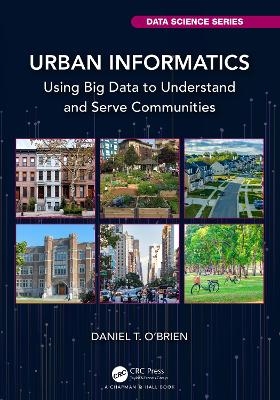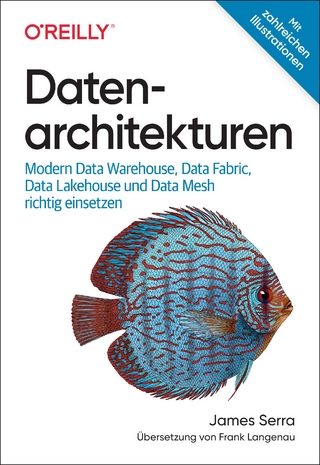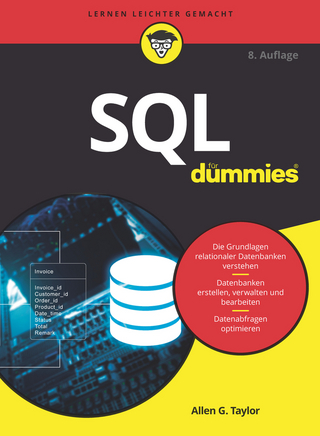
Urban Informatics
Chapman & Hall/CRC (Verlag)
978-1-032-26459-2 (ISBN)
Urban Informatics: Using Big Data to Understand and Serve Communities introduces the reader to the tools of data management, analysis, and manipulation using R statistical software. Designed for undergraduate and above level courses, this book is an ideal onramp for the study of urban informatics and how to translate novel data sets into new insights and practical tools.
The book follows a unique pedagogical approach developed by the author to enable students to build skills by pursuing projects that inspire and motivate them. Each chapter has an Exploratory Data Assignment that prompts readers to practice their new skills on a data set of their choice. These assignments guide readers through the process of becoming familiar with the contents of a novel data set and communicating meaningful insights from the data to others.
Key Features:
The technical curriculum consists of both data management and analytics, including both as needed to become acquainted with and reveal the content of a new data set.
Content that is contextualized in real-world applications relevant to community concerns.
Unit-level assignments that educators might use as midterms or otherwise. These include Community Experience assignments that prompt students to evaluate the assumptions they have made about their data against real world information.
All data sets are publicly available through the Boston Data Portal.
Daniel T. O’Brien is Associate Professor in the School of Public Policy and Urban Affairs and the School of Criminology and Criminal Justice at Northeastern University. He focuses on the use of modern digital data sets to better understand urban processes, including crime, education, transportation, public health, and neighborhood social dynamics. He is Director of the Boston Area Research Initiative, in which capacity he has worked extensively to build effective models of research-policy collaboration that help us to better understand and serve cities. His previous book, The Urban Commons, captures the intersection of his efforts to advance both science and practice in cities, using the study of “custodianship” in neighborhoods through Boston’s 311 system to illustrate the potential of cross-sector collaborations in urban informatics.
1 Introduction 2 Welcome to R 3 Telling a Data Story: Examining Individual Records 4 The Pulse of the City: Observing Variable Patterns 5 Uncovering Information: Making and Creating Variables 6 Measuring with Big Data 7 Making Measures from Records: Aggregating and Merging Data 8 Mapping Communities 9 Advanced Visual Techniques 10 Beyond Measurement: Inferential Statistics (and Correlations) 11 Identifying Inequities across Groups: ANOVA and t-Test 12 Unpacking Mechanisms Driving Inequities: Multivariate Regression 13 Advanced Analytic Techniques 14 Emergent Technologies
| Erscheinungsdatum | 30.11.2022 |
|---|---|
| Reihe/Serie | Chapman & Hall/CRC Data Science Series |
| Zusatzinfo | 3 Tables, black and white; 127 Illustrations, color |
| Sprache | englisch |
| Maße | 178 x 254 mm |
| Gewicht | 453 g |
| Themenwelt | Mathematik / Informatik ► Informatik ► Datenbanken |
| Mathematik / Informatik ► Informatik ► Theorie / Studium | |
| Mathematik / Informatik ► Mathematik | |
| Sozialwissenschaften ► Soziologie | |
| ISBN-10 | 1-032-26459-4 / 1032264594 |
| ISBN-13 | 978-1-032-26459-2 / 9781032264592 |
| Zustand | Neuware |
| Informationen gemäß Produktsicherheitsverordnung (GPSR) | |
| Haben Sie eine Frage zum Produkt? |
aus dem Bereich


